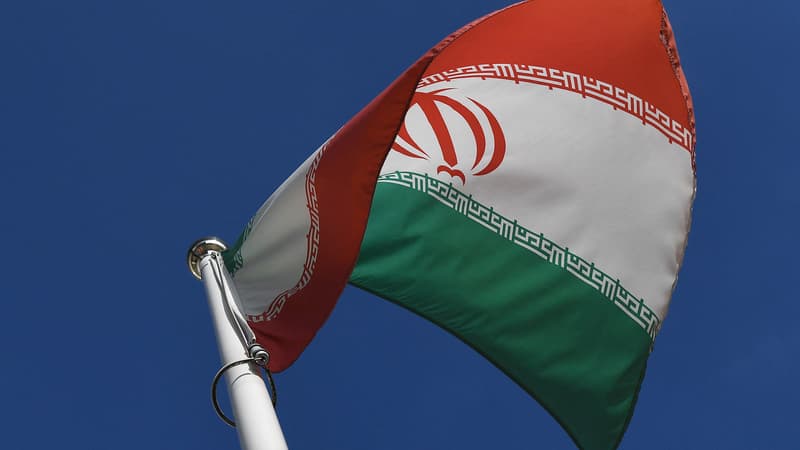Iran vindicated its right to defend itself on Saturday, October 26, following the attacks carried out by Israel against its military facilities, the latest episode of hostilities between the two enemy countries that has sparked calls for restraint due to the risk of a military escalation in the area. Middle East.
For the first time, Israel publicly announced that it had attacked Iran by launching predawn airstrikes on Saturday against missile manufacturing facilities in that country. Iran reported “limited damage” and four soldiers killed. Israel then threatened Iran with “paying a heavy price” if it retaliated, while Tehran said it had “the right and duty to defend itself against foreign acts of aggression”, prompting warnings about the risk of fire.
“I hope this is the end,” said US President Joe Biden, whose country is a close ally of Israel and its main weapons supplier.
During a telephone conversation with his Israeli counterpart, Yoav Gallant, US Defense Minister Lloyd Austin warned that “Iran should not make the mistake of retaliating,” stating that there is currently “an opportunity to use diplomacy to reduce tension.” in the region”.
A response to the Iranian attacks of October 1
The Israeli incursions are a response to a missile attack launched by Iran against Israeli territory on October 1, a spiral of violence linked to the wars waged by Israel against two Islamist movements supported militarily by Iran: the Palestinian Hamas in Gaza and Hezbollah in Lebanon. The war in Gaza was sparked by a deadly attack launched on October 7, 2023 by Hamas against Israel from the neighboring Gaza Strip. In support of Hamas, Lebanese Hezbollah opened a front against Israel the next day by firing rockets into northern Israel, on the border with southern Lebanon, and hostilities escalated into open war in mid-September.
On October 1, Iran fired some 200 missiles at Israel to avenge the deaths on September 27 of Hezbollah leader Hassan Nasrallah and an Iranian general, killed in Israeli strikes near Beirut, and on July 31 in Tehran, of Hamas leader Ismaïl Haniyeh, assassinated. in an attack attributed to Israel.
In response, the Israeli army stated on Saturday that it had “attacked missile manufacturing sites (…) that Iran has been firing at the State of Israel for a year,” as well as “ground missile batteries and other aerial missiles.” systems (…)”. The Iranian army assured that these attacks had only caused “limited damage.” “Only some radar systems were damaged,” announced the General Staff of the Armed Forces. “A significant number of missiles were intercepted and enemy aircraft were prevented from entering our airspace.
“A media and political and not military coup” by Israel
Despite the concerns, life continued as normal in Tehran and Tel Aviv. According to experts, the goal of the attack was to demonstrate Israeli offensive capabilities while avoiding escalation.
For Joost Hiltermann, director of the Middle East program at the International Crisis Group, the United States wanted these retaliations to be “proportionate, so that Iran would not have to respond.”
Likewise, Hasni Abidi, director of the Center for Studies and Research on the Arab and Mediterranean World (Cermam), believes that, under pressure from the United States, Israel carried out a “limited” operation to reduce the risks of an “explosion.” Israel “delivered a media and political coup, not a military one.”
Israel now focuses its operations in Lebanon
On the Lebanese front, the Israeli army reported “80 projectiles” fired by Hezbollah from Lebanon and continued its attacks in the south of the country. Lebanese national news agency Ani reported early Sunday on an Israeli incursion into the southern suburbs of Beirut, a Hezbollah stronghold, where the Israeli army had asked residents of two neighborhoods to evacuate their homes.
Israeli troops have been carrying out a ground offensive in southern Lebanon since September 30 with the aim of neutralizing the fighters of the Lebanese movement and stopping the launch of rockets. After a year of a devastating and deadly offensive in the Gaza Strip that weakened Hamas, the Israeli army concentrated its operations in Lebanon, carrying out intense and deadly attacks mainly against Hezbollah strongholds beginning on September 23.
On the Gaza front, the Israeli army continues its air and ground offensive in the devastated Palestinian territory plunged into a humanitarian catastrophe. New negotiations are expected on Sunday in Doha between Israelis, Americans and Qataris to discuss the possibility of a truce in Gaza associated with the release of the hostages kidnapped on October 7, 2023 and taken to Palestinian territory.
Source: BFM TV


